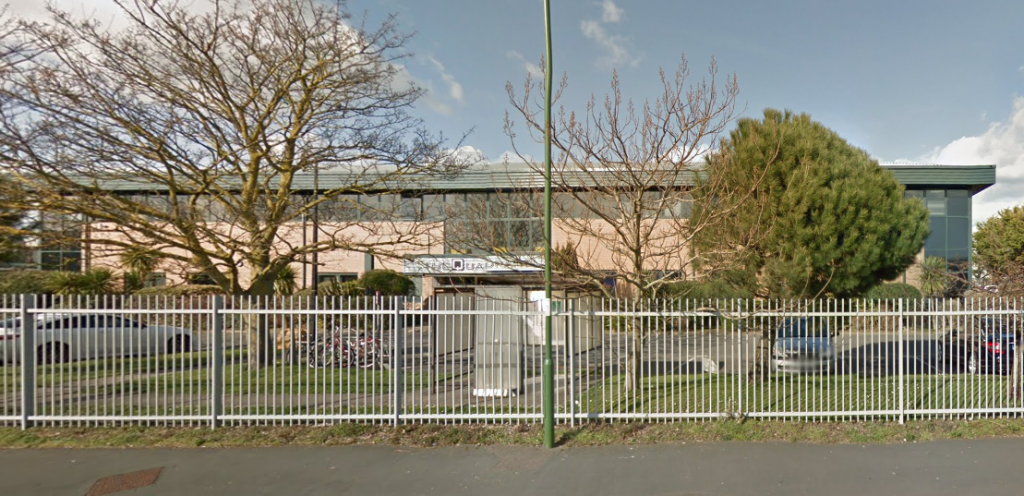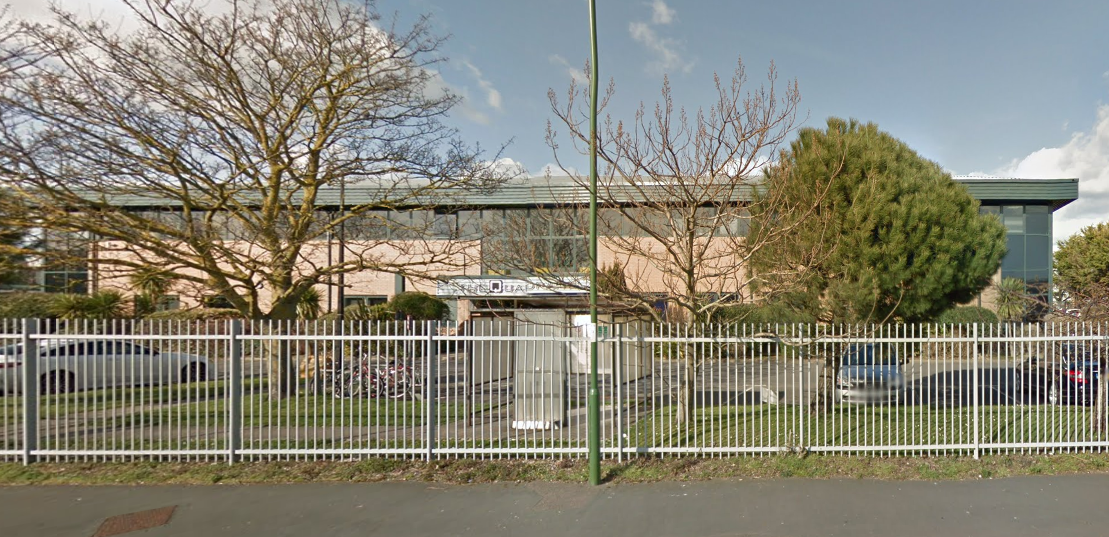A Brighton property business suffered a setback as its plans to turn offices into flats were rejected by councillors.
The Baron Homes Corporation, of Prince Albert Street, Brighton, applied for planning permission to convert an office block in Lancing into 53 flats under permitted development rights.
But councillors were told that the Quadrant, in Marlborough Road, Lancing Business Park, which was sub-divided into 12 office suites in 2006, has a high level of occupancy.
And the planning application for a change of use was unanimously refused by Adur District Council’s Planning Committee on Monday (9 November).
The two-storey office block is set in a two-acre site with 120 car parking spaces between Marlborough Road and Blenheim Road, in Churchill ward, and surrounded by commercial and industrial premises.
A report to councillors said: “The nearby commercial uses include window and kitchen manufacturing, waste management, logistics, warehousing, accident car repair, and precision tools engineering among others.
“The business park is recognised as a key employment site (and) is located within … an area of potential historic contamination.”
The council received 25 letters of objection, the report said, criticising the “loss of commercial floor space and associated loss of local jobs”.
The report said: “Lancing Business Park is the second-largest industrial area in West Sussex with more than 250 businesses employing more than 3,000 staff.
“The business park is extremely vibrant with 99 per cent occupancy and operates 24/7 with large numbers of HGV movements, including left-hand drive artics.
“The business park currently suffers from highways issue such insufficient parking, congestion at peak times, limited visibility at junctions for pedestrians, HGVs parking on pavements forcing pedestrians to walk in the road, vehicles constantly driving the wrong way round the one-way system, resulting in serious near-misses and a number of previous crashes, complaints from the residents surrounding the business park regarding the impact of the parking issues, out-of-hours vehicle movements and near-misses, eg, last May a seven-year-old very narrowly missed being hit by a commercial vehicle on the Chartwell bend.”
“Lancing Business Park operates 24/7 and as a result has received residents’ complaints regarding night-time noise from as far as north of the railway line. Introducing residential units within the business park itself would cause further conflict between uses.
“With many businesses operating overnight and at weekends, if residential were introduced on to the business park, the residents would suffer from constant noise.
“This application could therefore result in operating restrictions being imposed on the businesses based on the park, which could in turn impact the viability of the business park, leading to a drop in occupancy and loss of local jobs.

“Lancing Business Park should be protected for business use to avoid further conflict between uses and enable the local economy to recover and grow.”
Objectors also said that turning the office block into flats would create a “poor-quality living environment for future residential occupiers”.
Problems would include noise, light pollution, dust, industrial fumes, poor air quality and “fire risks from (an) adjacent recycling business which has had fires previously”.
In addition, the number of 44-tonne HGVs (heavy goods vehicles) combined with poor access to safe places for children to play would make it an unsafe environment for children.
One objection said: “The supporting noise survey is not a true account of the noise environment within the Lancing Business Estate as, while the park has high occupancy levels, due to the coronavirus lockdown the majority of the businesses are not operating at a much-reduced level.”
Another said: “Seagulls use the roof of the building which would create significant health and safety issues for future occupiers in terms of noise, waste and dirt.”

Councillor Brian Boggis objected to the plans although he acknowledged the “significant need to maximise the housing provision in the district”.
But he said: “The proposal is situated in the middle of our busiest business park.
“This would be an entirely unsuitable change for many legitimate planning reasons.
“However, my prime concern in this instance is the threat to our prime employment area by the loss of this significant asset to our local business community.”
Councillor Boggis said that the site was well-served by public transport, reducing the need for people to commute to jobs outside the area “in keeping with our longer-term aims to reduce our carbon usage”.
East Worthing and Shoreham MP Tim Loughton also objected to the proposal. He said: “(My) main concern is that we are losing valuable business space in Adur and specifically on the second-largest business park in West Sussex which is routinely near fully occupied.

“We have already lost a potential expansion space for businesses on New Monks Farm and this would set a dangerous precedent on Lancing Business Park.
“It is difficult to see how such an intensity of residential dwellings can sit alongside business premises where there is no restriction on hours of operation.
“(I have) previously received complaints from Winston Road residents whose living conditions have badly affected by noisy speeding delivery lorries operating in the middle of the night.
“They have had to insulate their properties and set up cameras to try to identify the firms involved but, even when they have identified the lorries, they are being operated normally.
“Such a density of flats would be very vulnerable to 24-hour noise including heavy duty HGVs such as those operating for Rabbit.”
Senior planning officer Jay Singh said in the report to councillors: “The proposal is considered unacceptable on noise grounds due to the likely impact from adjoining commercial premises and the resulting harmful impact upon the residential environment that would be created for future occupiers of the Quadrant.
“An attempt to address these issues would result in the creation of unsatisfactory living conditions to the detriment of residential amenity.”
He recommended that councillors turn down the planning application which they did.









